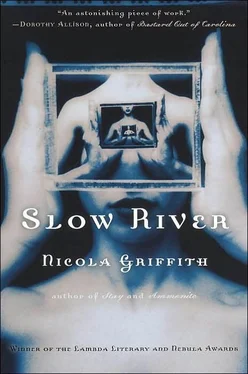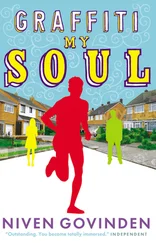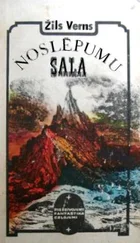Lore and Spanner spent nine days building a new door from the thick, old timbers they had scavenged. They took down the old door and hung the new one the afternoon the rain turned to a thin gray snow.
Lore stretched her back and kicked the old door, “I don’t relish hauling it about in this weather.”
“We could break it up for firewood.”
“We don’t need a fire. It’s already hot in here.” The flat was stifling. Spanner ran illegal spurs from the power lines and was as profligate with heat as with everything else: food, sex, promises.
But Spanner had disappeared into the hallway and come back with a sledgehammer. She hefted it a couple of times. Lore stepped out of the way and Spanner swung. The old door splintered with a satisfying crack!
“I said, we don’t need a fire. It’s—”
“If you’re hot, open the windows. Fresh air’s good for you.” She swung again.
Lore did not understand Spanner when she got in these moods. She had no point of reference for the frenzy, the constant urge to do, to use, to experience that often lasted for several days at a time. So she tried to remember what she knew about open fires, and peered as best she could up the chimney to see if the flue was clear. There was no ash in the grate. “Have you had a fire here before?”
“I’m sure I must have.” Rip. Splinter.
Lore moved the plants. We’ll need some paper, and kindling. I think.” She rummaged around. “We don’t have any paper.”
Spanner paused, breathing heavily. “Look under the bed.”
Lore trooped into the bedroom. Looked. “There’s only your box.”
“Then we’ll use some of that stuff.”
“No. We can—”
“Bring it,” Spanner yelled. Lore sighed, and did.
“Open it.” Crunch, splinter.
It was full of old photographs and documents. What looked like a birth certificate from the middle of the last century. “I don’t think you’ll want to use this.” She started to put the lid back on, uncomfortable with the idea that she had been wrist-deep in Spanner’s private family history.
Spanner dropped the sledgehammer and squatted down by Lore. She took a random handful of papers from the box, screwed them up, and tossed them on the grate.
“But don’t you want—”
Spanner ignored her and kept taking handfuls from the box, occasionally tearing a large piece into shreds. “Should burn well enough.”
Lore grabbed her hands. “Stop. Stop just a minute. We can go buy some paper if you like. You don’t have to use these.” Spanner shrugged her off hands already moving again. “Or we could use something flammable. Alcohol, maybe.”
“It’s just paper.”
They were Spanner’s memories. “Why are you doing this?” Why now, after all these years of hoarding them, keeping them safe Spanner said nothing, but Lore thought she knew: because now that Spanner had started to talk about them—the memories, the pictures—they were a point of vulnerability for her. Get rid of the pictures, get rid of the memories. No more vulnerability. No more weak points. The armor would be smooth again. “I won’t help you burn them.”
Lore walked into the kitchen and filled the kettle. Instead of putting it on the burner, she stared outside. Once she could see past her own reflection, she saw there was a squirrel in the garden, digging. Digging up her bulbs, eating them one by one. All that work, gone in an afternoon. She felt bitter. There did not seem to be any point in trying.
Back in the living room Spanner laid the paper in the grate, followed by some of the smaller splinters from the door, then some larger boards. Lore watched as Spanner plugged in her soldering iron and used that to set alight the paper. Watched as a wisp of smoke turned into a river flowing upward, and the paper seemed to disappear.
“It’s not working.” Spanner poked at the burning mess with the sledgehammer handle. The bits of broken door were blackening, but not catching. “Why isn’t it working?” She screwed up more paper, threw it on. A ball of burning paper roared up the chimney, borne on hot air.
Lore plucked a large splinter from the rug, examined it. “It’s not wood,” she said. “I mean, it is, but it’s that pressed stuff. It’s not going to burn.”
“Fuck it!” Spanner threw the sledgehammer into the fire. Burning scraps of paper went everywhere. “Let’s go get a drink.”
They went out and drank too much and came back to hard, sweaty sex and fitful sleep. At least Lore slept. When she woke up, Spanner was pacing around the bed, talking about the projects she wanted to start on: relaying the floor, decorating, maybe rewiring the place. She had obviously been up all night, working herself up to this pitch. Lore let the talk flow over her as she got dressed.
“… and here, I went out and got you some presents.” Spanner dragged three bags into the bedroom. “Open them.”
They were clothes. Some of them the kind she would wear, others not. They were all expensive.
“Pick out something nice for now and then we’ll go out. We’ll go shopping, buy you some other stuff if you don’t like this—”
“This is just fine.”
“—or we could just look around. I want to get out. I need to have some fun.”
She would not stop talking. Could not. Her eyes glittered and she seemed jerky and tense. Lore chose something at random; then, seeing Spanner’s eyes, she remembered her promise and chose a moss-green chenille tunic and matching leggings. “I’ll wear these. They’re lovely.”
“And the black dress? You like the black dress?”
“I don’t wear dresses much but, yes, if I wear a dress soon, this is exactly the kind of thing I would choose.”
“You’re not lying? You like it?”
“I’m not lying. I really like it. It’s too cold to wear it today, though. I’ll wear this.” She lifted her original choices.
“Where are we going?”
* * *
At Hedon Road, the mood in the locker room was mixed: face masks had arrived, but the systems were back up.
I pulled on my mask: neoprene and plastex with knobby filters on each side of the mouth gasket. I fit-tested the mask with negative and positive pressure, tightened the strap at the back of my head. It felt strange and primitive to wear a breathing mask again. I was used to either nose filters and automatic, trained nasal breathing, or the full-face mask and air tank of an SCBA. These masks were no good if something splashed on your face, but enough to keep out most vapors and particulates—if the filters were changed every week or so.
I showed Paolo how to pull the seals tight across cheekbones and jaw. It was hard, helping him fit it without touching his hands.
As we walked into the primary sector to relieve the day shift, Kinnis clowned around in his mask, making bug-eyed-monster noises. Lots of people laughed. We were all relieved that the systems were back up. If someone or something slipped now, it was up to the machines to catch it, not us. Not me. And the system was good enough to stop most things, except the unk-unks: the unknown unknowns for which it was impossible to plan.
But Magyar did not give me time to worry about unk-unks.
We’d been on-shift about twenty minutes and one of the rakes had already jammed. Paolo and I had freed it and were just climbing out of the trough when Magyar, mask loose around her neck, walked over.
“It’s against regs to free those by hand, Bird. Could be dangerous. Paolo doesn’t know any better, of course, but consider yourself under verbal warning. Further infractions of Health and Safety regulations will result in a formal written warning. A third infraction will mean dismissal.” Her eyes were hard and pleased.
A few troughs down, Meisener and Kinnis were wrestling with a stalled rake. I didn’t need to be afraid. My records were airtight, now. I looked over at them deliberately, back to Magyar.
Читать дальше












